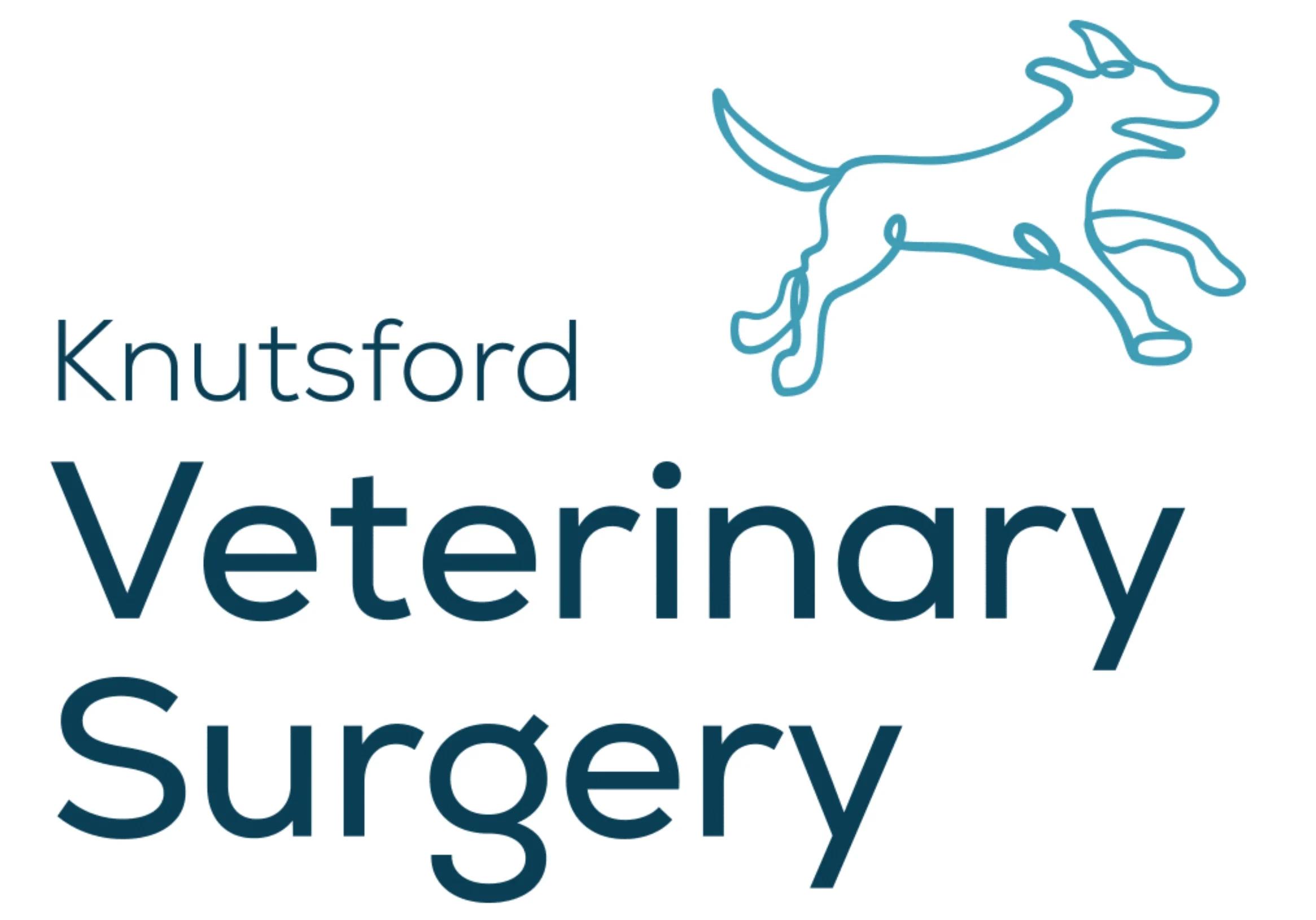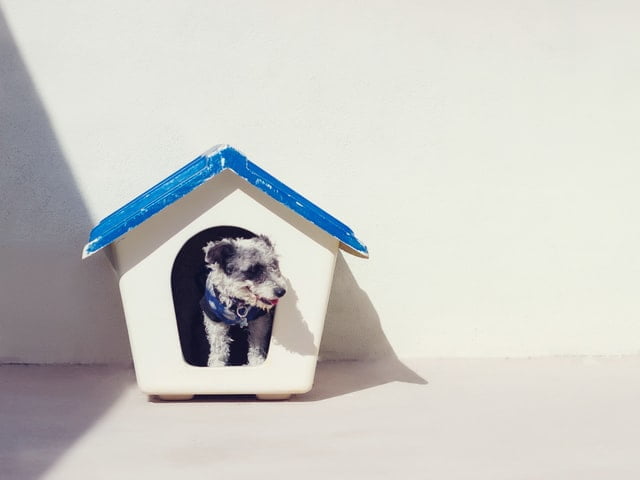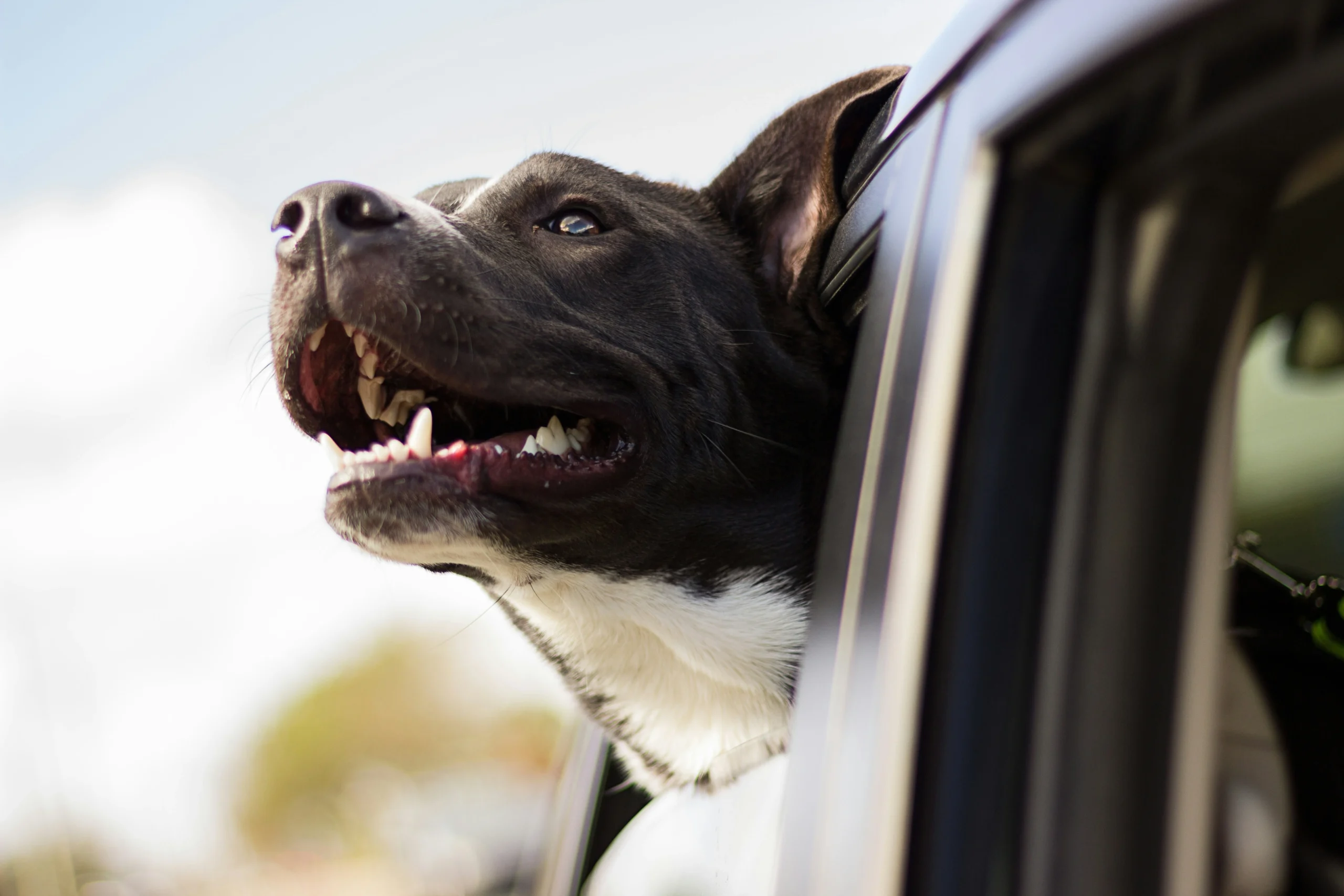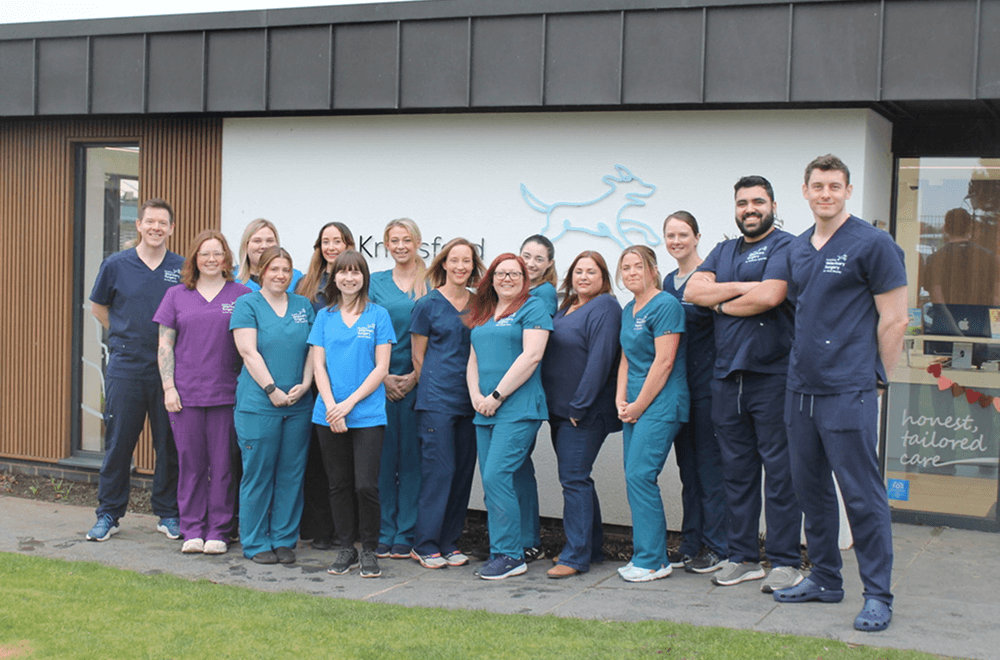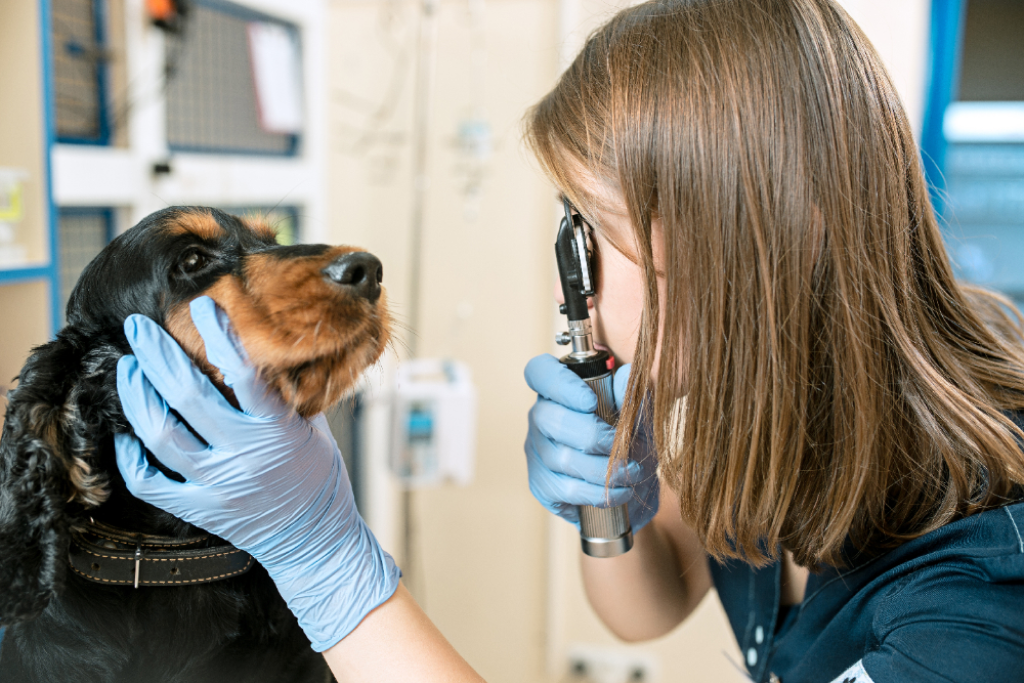Everything you need to know to get your pet to a healthy weight
Healthy eating is a priority for many in January and here at Knutsford Vets, we’re encouraging owners to think the same for their pet. Your pet’s weight and diet is highly important for them to maintain a healthy lifestyle and to keep them happy for longer. In the UK alone, it’s estimated that 40% of dogs and 53% of cats are overweight.
Just like in humans, being overweight for pets can bring a variety of health complications and potential risks. Obesity has even been classified as a disease in its own right by the British Small Animal Veterinary Association. In this blog we tell you how to prevent your pet becoming overweight, outline the dangers associated with being overweight and give you some helpful tips to get them back to their ideal weight.
Contents
- Why does your pet’s weight matter?
- How can your pet become overweight?
- How to spot signs of an overweight pet?
- How to improve your pet’s weight
Why does your pet’s weight matter?
Our pet’s weight is important for their physical and mental wellbeing. They need to maintain an active lifestyle to be healthy and their weight can get in the way of that.
Disease risk
An increase in body weight is a risk factor and cause for all kinds of diseases for cats and dogs. Some potential risks include: –
- Osteoarthritis
- Cardiovascular disease
- Diabetes
- Reduced immune function and liver function due to a fatty liver
- Urinary tract infections
- Cancers
It’s worth pointing out that many of these conditions may also be the cause of your pet gaining weight.
Injury risk
An increase in our pet’s weight places more pressure on their bones and joints. If your pet is already susceptible to injury, their weight can accentuate the problem (for example cruciate rupture). Owners of breeds that are prone to certain injuries or owners of dogs that have already suffered injuries in the past should be especially vigilant. It’s also the start of a vicious circle as injuries not only become more common in overweight pets, but injured pets also find it hard to lose weight.
Mobility
Just like humans, our pet’s mobility decreases as they get older. An increase in body weight will speed up the effects of this change over time. If you want your pet to live a happy and mobile life into their old age, it’s important that you maintain a healthy weight whilst they are younger.
Playfulness and general mood
You may think your pet will be happier with more food when they’re begging for it at your feet, but a healthier pet is always a happier pet. Your pet will have more energy and be more playful and exuberant if they maintain a healthy weight.
How can your pet become overweight?
Weight gain usually happens slowly, over time as a result of too many calories in and not enough out. It can be hard to notice sometimes as you spend every day with your pet. Here are some of the potential causes of weight gain.
Over Feeding
Cats and dogs can push our buttons when it comes to food. They’ve mastered the art of looking hungry even when they’ve just had their meal. This can lead us to question their portion sizes and over time you may gradually increase the size of their meals as a result of this behaviour.
Obviously we don’t want our pets to go hungry, but as a general rule of thumb, you should always follow guidance from your vet and from the food manufacturers on how much you should feed your cat or dog. If you still think your pet is hungry or they’re constantly begging for food, consult a vet before increasing their portion sizes.
Diet
It’s not just the amount of food that can cause our pet to become overweight, but the quality of their diet is also important. Treats should never make up more than 10% of your pet’s diet even when training. You should always avoid feeding them any fatty human foods such as cheese or processed meats like ham or sausage. It’s also important to ensure they don’t have access to these foods, whether they are left unattended in the house or they’re visiting a neighbour for their unhealthy second dinner.
Exercise routine
A consistent exercise routine is important for all pets, whether it be a cat, dog, rabbit or even smaller animals. Just like humans, if our pets don’t burn enough energy it’s stored on their frame as fat. A lack of exercise can also decrease our pet’s metabolic rate, meaning they burn their fat at a slower rate than a dog with a consistent exercise routine.
Depending on breed, most dogs need to be walked twice a day to improve both their physical and mental health. You’ll also want to incorporate some form of indoor play into their routine. The same applies to cats; outdoor cats should always be encouraged to exercise outside and you should make time to stimulate and play with your cat indoors.
That said, it’s important that you don’t increase your pet’s daily exercise too rapidly, any changes should be done gradually to allow their body to adjust. There’s more advice on this later in the article.
Effects of neutering, disease or injury
The neutering operation can also decrease our pet’s metabolism and cause an increase in weight. You can reduce the chance of your pet gaining weight after the operation by reducing calorie intake by 10-15% or feeding a ‘neutered diet’
Some causes of weight loss are out of our control, including illnesses or injuries. As their owner, it’s important that you spot signs of illnesses that could be causing your pet to increase weight and you seek advice on managing the effects. Further weight gain on top of injury or illness can only make things worse.
How to spot the signs of an overweight pet?
When you spend every day with your pet it can be difficult to tell the warning signs. We recommend a routine of monitoring their weight and body composition.
Weigh them regularly
This may seem obvious, but the scales never lie. Adopting a routine of weighing your pet every 2- 4 weeks will help identify any fluctuation, giving you time to adapt to their diet or lifestyle before it becomes a problem.
Smaller dogs and cats can be weighed on household weighing scales by positioning a tray on top of the scales to sit them on. For bigger dogs, bring them into the vets (we don’t bite). Our ‘weighting room’ is open whenever we are and our scales are free to use. Why not plan a walk in the lovely area around our surgery whilst you’re at it!
Complete regular checks on their body composition
All dogs and cats are built differently, but generally speaking there are checks you can do at home that will help you assess your pets body composition. This helpful video with Dr Paul Adams, will show you the key checks that you can perform on your dog to identify if they are over or underweight. The accompanying blog will also help.
Measure your pet’s waist
It’s also worth taking measurements of your pet’s waist size from level with the last rib. This will give a quick indication of how their shape is changing and you can monitor it easily. If your dog is exercising more, they will often put on muscle meaning they won’t lose much weight. Their waist size will offer another useful reading.
If in doubt, visit our free weight clinics
Whether you’ve noticed a fluctuation in your pet’s weight or you just think they might be overweight, book an appointment with one of our nurses to get an expert opinion. Our weight loss clinics are free and they will give you all the advice you need to help your pet maintain a healthy weight and lifestyle. It will also be the first step in ruling out any underlying health issues with your pet.
How to improve your pet’s weight
If you’ve realised that your pet is overweight, then you’ll obviously want to start doing something about it. Here are some tips to help.
Professional advice always makes weight loss more effective
With anything, professional advice always helps. Our weight loss clinics allow us to assess your pet’s body weight and health. You’ll also receive tailored advice and support materials that are specific to your pet and their lifestyle.
Build an action plan
Following our consultation you’ll receive an action plan that will help your pet achieve their healthy weight. This will not only help you make healthier choices, but it will ensure you do so in a sustainable and gradual way that doesn’t cause additional risk of injury.
Slow feed bowls
Slow feed bowls are a great way of making your pet’s dinner last longer by making it harder for them to eat it. They’re designed so they can only take small mouthfuls to make them think they’ve had more food than they actually have.
Food balls
Food balls are a fun and active way to feed your pet. They encourage them to play in order to eat their food. There are a number of designs, but the concept means your pet will have to chase and knock the ball around for their food to fall out.
Hire a dog walker to increase exercise
If you lead a busy life and taking your dog for long walks is hard to fit in around your schedule, you should hire a dog walker to share their exercise. If your dog is injury free, exercise is the best way to help them shed weight, but ensure you build their load gradually. A doggy daycare centre can have similar benefits too.
Visit a swimming pool for dogs
If your dog is injured, then low impact exercise may be the only way to get them down to their ideal weight. These are a fun way for your dog to get the exercise they need without causing pain or discomfort.
Healthy treating is key
Treats should never account for more than 10% of your pet’s diet even when training. If you have to give them treats, use normal biscuits or lean meats as an alternative. Never feed them fatty human foods.
Don’t feed me collars
If you’ve placed your cat on a weight loss action plan, but you suspect they’re receiving food from neighbours then a collar is a great way to warn them not to feed. A simple message explaining it’s for the good of their health will usually be effective and paying the neighbours a visit or posting a note through their letterbox will also help.
In some patients special medicines are needed alongside prescription diets to help shift stubborn weight.
If you have tried all the options above then why not book an appointment online here.
